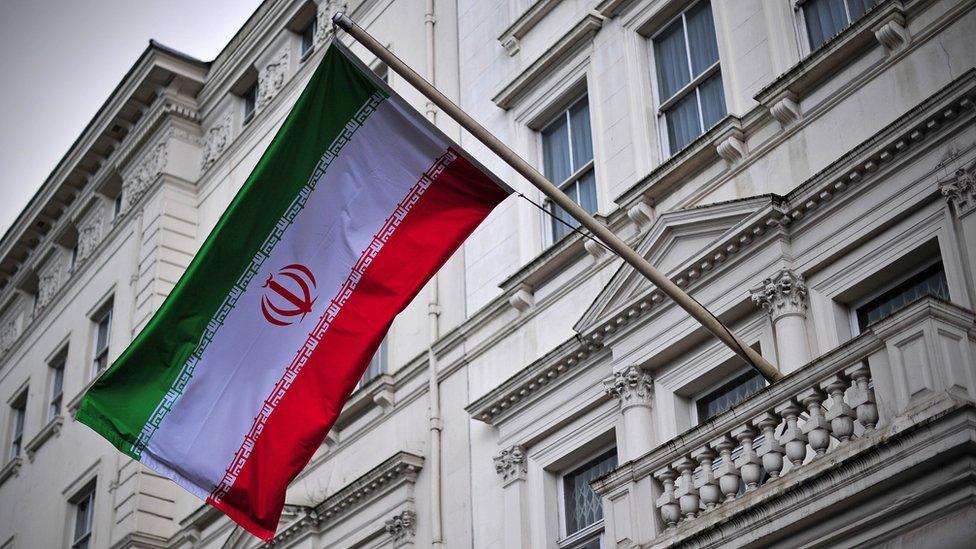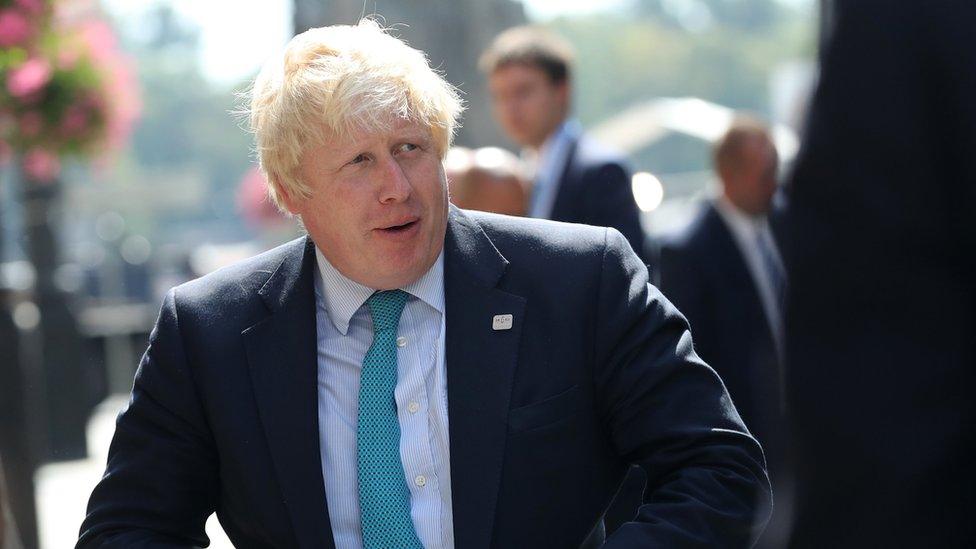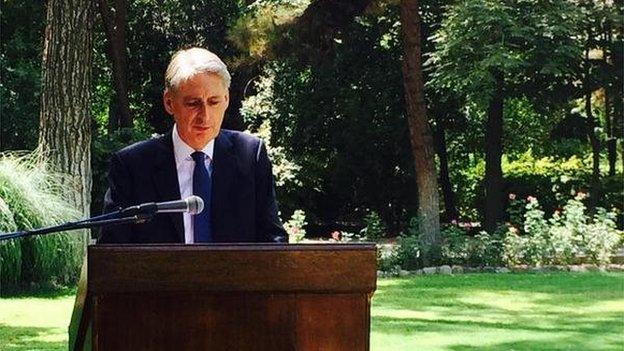UK appoints first ambassador to Iran in five years
- Published

The UK has appointed an ambassador to Iran for the first time since 2011, as part of its aims for "more productive co-operation".
The Foreign Office announcement comes one year after the reopening of the British Embassy in Tehran.
"This is an important moment in the relationship between the UK and Iran," Foreign Secretary Boris Johnson said.
Nicholas Hopton, a former British ambassador to Qatar and Yemen, will take up the role of ambassador.
The British embassy in Tehran was closed after it was stormed and ransacked by protesters in November 2011.
The embassy was reopened in August 2015 by then-British Foreign Secretary Philip Hammond and the two countries resumed ties on Charge d'Affaires level.

The appointment is being seen as an "opportunity to develop discussions on a range of issues", Boris Johnson said
"The upgrade in diplomatic relations gives us the opportunity to develop our discussions on a range of issues, including our consular cases about which I am deeply concerned," Boris Johnson said in a statement.
"I hope this will mark the start of more productive co-operation between our countries, enabling us to discuss more directly issues such as human rights and Iran's role in the region."
Mr Hopton joined the Foreign & Commonwealth Office in 1989 and was the British ambassador to Qatar from 2013 to 2015.
He also served as the British ambassador to Yemen and at the British Embassies in Paris, Rome and Rabat.

Analysis
By Caroline Hawley, BBC diplomatic correspondent
Ever since the Islamic Revolution of 1979, the relationship between Iran and Britain has been rocky, to say the least.
It hit a low five years ago, when protesters tore down the flag at the British embassy and ripped up pictures of the Queen after Iran's parliament voted to expel the British ambassador.
Today's upgrading of ties - which amounts to the full restoration of diplomatic relations - is symbolically important.
It is the culmination of months of steady improvement following last year's nuclear deal.
The lifting of sanctions has created new business opportunities for Britain, but politically there will, no doubt, be bumps in the road ahead.
London and Tehran don't see eye to eye on Iran's role in the wider Middle East or on human rights, and the continuing detention of dual national Nazanin Zaghari-Ratcliffe - arrested by Iran's Revolutionary Guards in April - remains a source of great concern to Britain.

The development follows the arrest of at least six people with dual nationality who are being held in Iran for alleged security offences.
One of them, British-Iranian charity worker Nazanin Zaghari-Ratcliffe, was arrested in Tehran in April while she was trying to return to the UK after a holiday with her two-year-old daughter Gabriella.
Iran does not recognise dual nationality, and does not allow consular access to those who are being held.
Prime Minister Theresa May spoke with Iranian President Hassan Rouhani about the cases over the telephone last month.
Ms Zaghari-Ratcliffe has not yet been informed of any charges brought against her, her husband said.
- Published23 August 2015
